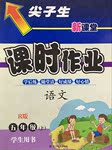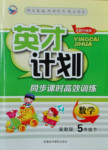题目内容
It is, everyone agrees, a huge task that the child performs when he learns to speak, and the fact that he does so in so short a period of time challenges explanation.
Language learning begins with listening. Individual children vary greatly in the amount of listening they do before they start speaking and late starters are often long listeners. Most children will “obey” spoken instructions some time before they can speak, though the word obey is hardly accurate (精确) as a description of the eager and happy cooperation usually shown by the child. Before they can speak, many children will also ask questions by gestures and by making questioning noises.
Any attempt to trace (探察) the development from the noises babies make to their first spoken words leads to considerable difficulties. It is agreed that they enjoy making noises and that during the first few months one or two noises sort themselves out to show joy, sadness, and so on. But since these cannot be said to show the baby’s intention to communicate, they can hardly be regarded as early forms of language. It is agreed, too, that from about three months they play with sounds for enjoyment, and that by six months they are able to add new sounds. This self-imitation (自我模仿) leads on to imitation of sounds made or words spoken to them by other people. The problem then arises as to the point at which one can say that these imitations can be considered as a speech.
1.The third paragraph is mainly about ____
A.the development of babies’ early forms of language
B.the difficulties of babies in learning to speak
C.babies’ strong desire to communicate
D.babies’ intention to communicate
2.The author’s purpose in writing the second paragraph is to show that children ____.
A.usually obey without asking questions
B.are not active in the process of learning to speak
C.are born cooperative
D.learn to speak by listening
3.From the passage we learn that ____.
A.early starters can learn to speak within only six months
B.children show a strong desire to communicate by making noises
C.imitation plays an important role in learning to speak
D.children have various difficulties in learning to speak
4.The best title for this passage would be ____.
A.How Babies Learn to Speak B.Early Forms of Language
C.A Huge Task for Children D.Noise Making and Language Learning
A
D
C
A
【解析】

 尖子生新课堂课时作业系列答案
尖子生新课堂课时作业系列答案 英才计划同步课时高效训练系列答案
英才计划同步课时高效训练系列答案Directions:Read the following passage.Fill in the numbered blanks by using the information from the passage.Write NO MORE THAN THREE WORDS for each answer.
New Year traditions all around the world
“Happy New Year!” Everyone will greet each other with these words as they meet each other over the next couple of weeks. But it wasn’t always January 1 that marked the New Year.
At least 4,000 years ago, the ancient Egyptians and Babylonians marked the changing of the year. In Egypt, the year started when the Nile River flooded, enriching farmers’ fields. This happened at the end of September.
The Babylonians held a festival in the spring, on March 23, to kick off the next farming cycle. The Babylonian celebration lasted for 11 days.
The date January 1 was picked by the Roman Emperor Julius Caesar as the change of the year when he established his own calendar in 46 BC. The month of January originates from the Roman god, Janus. He is pictured with two heads. One head looks forward and the other back. They represent a break between the old and new. The new calendar was in time with the sun and it has been used until the present day.
In Vietnam, the New Year holiday happens in February. They buy fresh flowers and a peach blossom to put in their house, following the Vietnamese custom.
Thailand has its specific New Year’s date; it’s different from the normal calendar. The Thai New Year is celebrated on April 13. On this day, Thai people play with water, throwing it on each other. It is intended to bring good luck during the New Year ahead.
In China, the more favorable New Year is usually celebrated in February according to lunar calendar (阴历). On New Year’s Eve, all family members sit together at table, enjoying lots of auspicious foods such as dumplings, chicken to bring good luck.
New Year traditions all around the world
| Countries | _____ | Origins or activities | Meanings or reasons |
| _____ | the end of September | the Nile River flood | _____ |
| Babylon | _____ | _____ | kick off the next farming cycle |
| _____ | January 1 | roman god, Janus | _____ |
| Thailand | _____ | throwing water on each other | bring good luck |
| _____ | February | buying fresh flowers and a peach blossom | follow the custom |
| China | February | _____ | bring good luck |
A fried of mine named Paul received an automobile from his brother as a Christmas present. On Christmas Eve when Paul came out of his office, a naughty street boy was walking around the shiny new car, admiring it. “Is this your car, Mister?” he asked..
Paul nodded, “My brother gave it to me for Christmas.” The boy was surprised. “You mean your brother gave it to you and it didn’t cost you anything? I wish…” He hesitated(犹豫).
Of course Paul knew what he was going to wish for. He was going to wish he had a brother like that. But what the boy said made Paul think all the way.
“I wish ,” the boy went on, “that I could be a brother like that.”
Paul looked at the boy in surprise, adding, “Would you like to take a ride in my automobile?”
“Yes, I’d love that.” After a short ride, the boy turned and said, “Mister, would you mind driving in front of my house?”
Paul smiled, He thought he knew what the boy wanted. But Paul was wrong again. “Will you stop where those two steps are?” the boy asked.
He ran up the steps. Then in a while Paul heard him coming back, but he didn’t come fast. He was carrying his little crippled(伤残) brother. He pointed to the car and said, “There it is, Buddy, just like I told you up stairs. His brother gave it to him for Christmas. And some day I’m going to give one just like it and then you can see for yourself all the pretty things in the Christmas windows that I’ve been trying tell you about. ”
Paul got out and lifted the boy to the front seat. The shining-eyed older brother climbed in beside him and the three of them began a memorable holiday ride.
That Christmas Eve, Paul learned what “It is more blessed to give” means.
【小题1】The naughty street boy wished to _____________ .
| A.have a brother like Paul’s |
| B.get a present from his brother |
| C.become a brother like Paul’s |
| D.take a ride in his automobile |
| A.play a trick on him |
| B.own a car like Paul’s |
| C.pick up someone important to him. |
| D.show off by riding home in a car |
| A.His pride. | B.His bravery. | C.His love. | D.His generosity. |
| A.A brother like that |
| B.A Christmas present |
| C.A boy’s crippled brother |
| D.An unforgettable Christmas |
| A.It is better to help than to get helped. |
| B.The more help you give to others, the happier you will feel. |
| C.To help other people is a way to make a person to become a true man. |
| D.To give away all your wealth, otherwise, you won’t be blessed by God. |
When Xia Min started drinking alcohol with her classmates at a friend’s birthday, she didn’t realize what would happen to her. She drank a lot and fell into a coma (昏迷). The 15year-old girl from Chongqing never recovered.
Xia’s death is warning to other students. A new rule went into effect on January 1, 2006. Teens are not allowed to buy or drink alcohol. Shops are not allowed to sell it to them.
A 1999 Chinese law forbade (禁止) shops to sell alcohol to youths under 18. But it is not taken seriously by shopkeepers because it doesn’t have specific rules. People hope the new rule will work.
“I tasted alcohol when having the dinner of the last New Year’s Eve,” said Lian Yuqi, a 16-year-old girl in Xiamen. She believes that the new rule will stop teens from drinking and help them grow in a healthy way.
“Although it may be a little disappointing not to have beer at parties, I think we can have soft drinks instead,” she said.
【小题1】Xia Min died from alcohol at the age of ______.
| A.15 | B.16 | C.17 | D.18 |
| A.a warning sing | B.a shopkeeper |
| C.the new rule | D.a 1999 Chinese law |
| A.it is against the new rule for youths under 18 to drink alcohol |
| B.shops can sell alcohol to a 16 years old youth. |
| C.without an ID card, young people can’t buy alcohol |
| D.it seems that the young girl, Liang Yuqi, likes to drink alcohol |
| A.The new rule has worked very well. |
| B.Shopkeepers can sell alcohol to teens above 18. |
| C.China’s legal drinking age is clearly under18. |
| D.Many teens drink alcohol to show they’ve grown up. |
| A.the harm of drinking alcohol |
| B.the legal age for drinking alcohol |
| C.a new rule to stop teens drinking |
| D.student’s ideas about drinking alcohol |
